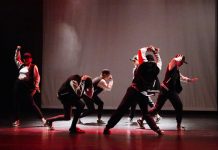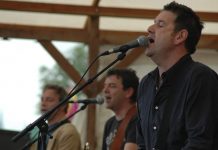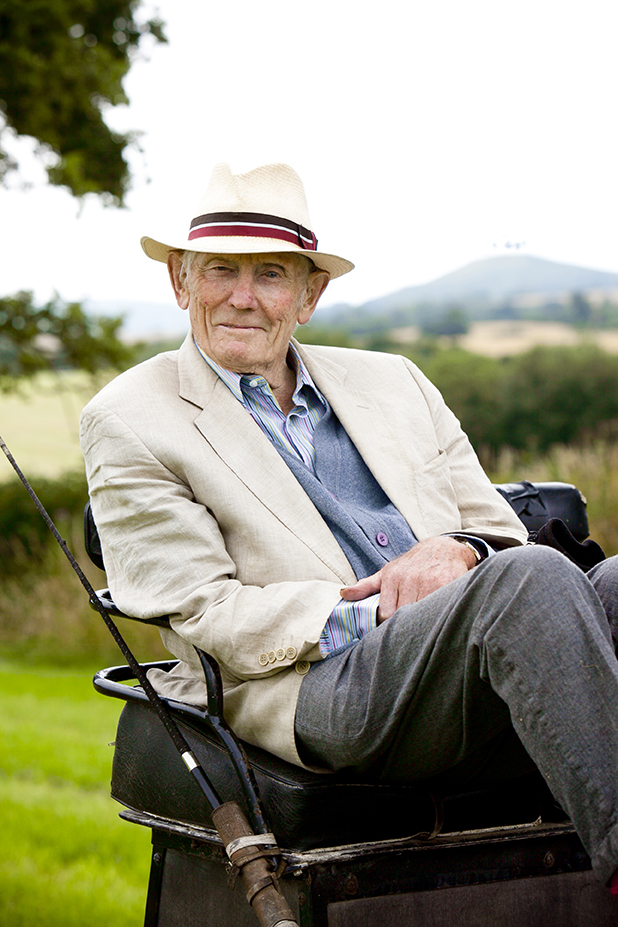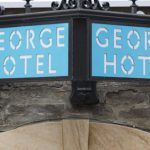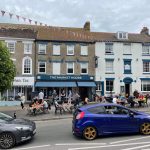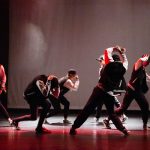In 2007 Sir John Colfox shared some of his memories with Fergus Byrne. The following is part of what he said.
“I was born in London, but that was not my fault, in 1924. My parents moved into Symondsbury Manor when I was a few months old. My two younger sisters followed, also born in London. I remember my Mother returning with the babies and wondering why babies should always come from London.
Another early memory was looking from my nursery window into the Manor Farmyard. A splendid sight every morning. Fifteen heavy horses being prepared for work. Teams of three going off to plough or work the ground. Whatever was in season. Harry Pitcher was one of the Carters. Ken Westcott’s father was another.
I went away to a prep school called Heatherdown near Ascot in 1932. It was a four hour drive in a Singer Six. It went at sixty down hill and had a luggage rack on the back for the trunk. After Heatherdown came Eton in 1937. Pre-war Eton was a bit like Tom Brown’s School Days. I was not academic. Eton had wet bobs and dry bobs, those who rowed on the river and those who played cricket. The river was grand. I enjoyed it hugely. I finished by getting into the eight which rowed at Henley in a schools regatta in 1942 which we won. Being war time there was no official Henley regatta. Eton provided several of the boats. As no one had any petrol to take them by lorry, scratch crews rowed the boats up and came home by steam train. After the race we were all hyped up after having won. We set off on the 25 mile journey downstream to Eton. If you have ever rowed a boat you must be able to remember the feeling when it is going well. The whole thing depends on absolute timing. Clonk-swish-pause-clonk-swish-pause. After 25 miles the boat sped. It was a beautiful moonlit evening. We had our coach with us. He rode the whole way on a bumpy towpath on his bicycle. There were seven or eight locks for him to get his breath back. We stopped for dinner at Skindles Hotel in Maidenhead. The final lap was two more locks and so home at about ten o’clock in the gloaming. I have never forgotten that evening and never will. The way to coach an eight is to take them on a twenty five mile row, but few people have the time today.
I joined the Navy on 10th Oct 1942, arriving at HMS Collingwood with my gas mask in its cardboard box. There were 5000 of us there and because of my background I was made what was called a Class Leader, in charge of a class or hut, about 30 of us. I had learnt a bit of jujitsu at Eton. That came in handy.
Then to my first ship. A hunt class destroyer, HMS Atherston. Immediately after joining we went to sea. A short trip but long enough to be seasick! It was from Harwich to Chatham for a boiler clean. That gave us three days in dock and a chance to nip up to London. Four of us set out by steam train. We had a night on the town and then required a bed. We were in uniform of course. Bell bottomed trousers and the little round hat. We required somewhere to stay the night. Derek Mond said we were to stay at Claridges, close to where his parents lived in a big house in Grosvenor Square. By this time it was two in the morning. We swept through the main door of Claridges, Derek produced from his bell bottoms a crinkly white five pound note which he slipped into the hand of the night porter. We were given a suite on the top floor, but had to catch the 5.30am train to be back on board by 0700!
Then off to Gibraltar which took five days of seasickness. On to Oran, then finally to Bone where I had a respite from seasickness. We had been escorting a convoy to Alexander’s Eighth Army.
After a few months convoying supplies along the North African coast it was time for four of us, who had all joined together, to go for officer training. Then to a ship in Scapa Flow. A Colony Class Cruiser called Jamaica. Fourteen months followed on Russian Convoys. I had the experience of being part of the last naval battle with Battleships when the Scharnhorst was sunk. A very interesting day.
Eventually the war ended and Jamaica took me to the Far East. There is no doubt that the most enjoyable year of my life thus far was 1945/46. I was having a very interesting time travelling the world and being paid (all be it not very much) to do it.
After demobilisation in 1946 I trained as a Land Agent. My first estate office was on a Ducal Estate. It was good fun and very interesting. I was there for the winter of 1946/47. It was known as Shinwell’s Winter. It was very cold. Snow on the ground for months. The Welbeck Estate was rich on coal royalties. It was in the heart of the Black Country. The snow soon turned grey and the sheep were always nearly black. The country was on a three-day week because of coal shortages and consequent lack of power. Shinwell was the Minister of Fuel and Power and was known as the Minister without Fuel or Power. It was a dire time.
I worked at Ragley Hall Estate, home of the Marquis of Hertford, who was a boy of sixteen at the time, and sadly no longer with us. I also worked at Sanctuary and Son in Bridport who were housed in the building now occupied by Nantes.
The next thing was to get some farming experience. Denmark was highly thought of as an agricultural Country. At that time Danish production was way ahead of ours. They filled most of the British bacon market of the day.
Working on a farm in Denmark was an experience. I went to Denmark through a scheme under the auspices of the NFU, leaving England on 22nd April 1950. Working hours were six till six, six days a week. At soon after six in the morning we assembled in the stables and mucked out and fed the horses. Then breakfast at seven till half past and out in the fields till half past eleven; then midag (mid day meal). This lasted an hour and a half. I remember needing all that time to be able to eat enough! The farm was 100 tonland. About 140 acres. On it were a herd of 30 Danish Reds, like a Red Devon but a dairy cow. A herd of 12 Landrace sows and their progeny. These were looked after by the Foedermester. Feeding master seemed to me a very good title for a man whose job was to make animals grow. I don’t think he ever had a day off. There was one arbiseman (labourer) the two sons and me. The old man did some light work when he was not complaining about me. I might have been over sensitive with him as I had no idea what he was saying. Any how I lost my temper with him once and frightened him a bit and he was better for a while.
After I had been at Frederikshoy for three weeks Hans made an announcement. “I have spoken English long enough. We will now speak Danish”. Oh dear. I did my best. The easiest thing to do was to find all the words that were the same in both languages and use those. Most agricultural terms were the same, or nearly the same. But as for the rest, I felt very isolated, rather like having my head in a box. Gradually it got better.
I was only in Denmark for just over four months but saw winter on arrival, spring, summer and autumn, leaving after the corn harvest. My memories of Denmark are happy. Not much spare time. Not much pay! After four months on a 54 hour week I expected a little pay, but when board and lodging and laundry had been deducted I was handed the equivalent of £3 of 1950s money, I did not argue. I felt like giving it back as a tip, but was too greedy!
At about this time John Streatfeild, (husband of Joan and father of Simon and George, Jenifer Gregson, Anne Crawford and Sue Smiley), found himself being invalided out of the Navy. He had decided he wanted to take up farming. He was a friend of Alexander Hood who wanted to have an interest in land and farming and was a very rich man. John offered his services to help me get started at Symondsbury. Immediately we discovered that there was an agricultural tour of Denmark, organised by a Danish Government quango called the Danish Council. It was the greatest fun. We learnt a great deal. We visited bacon factories, stayed at agricultural colleges, learnt about the successes of Agricultural Cooperatives. We covered all the subjects that were of interest and saw most of the country including Langeland, one of the islands, as spick and span as it was possible to be.
When we started at Crepe Farm my Father was in charge and one of the stipulations was that no artificial fertilisers were to be used. Agricultural sprays were still in their infancy and were not an issue. It was difficult to make a profit out of Organic Farming and that was my chief priority. At the time a man called Friend Sykes had written a book on the subject. It became our Bible, and he became our Guru. He was paid an enormous fee to supervise the first year. He prescribed making hay on trypods as in the Alps. All very well if you have three acres, but it did not make sense on a commercial scale in England. We made immense changes as one would expect; among them, we put in a water scheme for the whole farm. One of the stipulations for the water scheme, as laid down by Sykes, was that the troughs had to be in the middle of the fields. Fine if the fields were 50 acres as on his Wiltshire farm, but not so good at Crepe where fields then were mostly five acres. The idea was that when cows drank a lot of cold water they had what Sykes described as a ‘peristaltic’ action. In other words the cold water made them pass it, thus spreading the fertility round the field as they walked away. We bought in a new herd of cows. Ayreshires with a Guernsey bull. A theory of Friend Sykes’s which he was trying out at our expense.
I had joined the Bath and West Agricultural Society in 1948. I was asked by my Honorary Uncle Jim Best (in those days all my father’s generation were honorary uncles or aunts) to help him steward the Sheep Shearing competitions. It was the first show after the war. At that time the Bath and West was known as the Bath and Best as there were so many Bests acting as Stewards.
As the Bath and West was restarted just after the war, and agriculture still had a great future, there were a lot of young interested in the Show and also being young, interested in having a good time. Evenings in the Council Tent, which was a bit like a Naval Wardroom or more like an Army Mess, were always lively. After dinner many great games were played. Who could place a beer bottle the furthest from their feet without touching the floor using a second bottle to balance with. Who could get the furthest round the room without touching the floor, who could somersault over the largest number of chairs, and such like. One evening Scrap Batten and I for some reason got busy with a pot of Ajax cleaner. It got onto a car belonging to Mr Sutton, of the seeds. Silly old man he thought that the cleaner would scratch his car and made an official complaint. The next day it was “off caps” for Scrap and me in front of Bill Roberts, the Hon Show director. Nothing like that today!
Harry Pitcher was a lovely character. Somehow he and his wife had reared eight children on the agricultural wage of those days. When I first knew him he was employed by Mr Johnson who was by far the largest tenant on the Symondsbury estate. Harry had a great admiration for Mr Johnson. He often told me off saying Mr Johnson would never have done that! Harry’s son Victor worked on the Farm for a short time in my Father’s day. There was one day in the Second World war: I was home from school and a member of the Home Guard. The Home Guard was having an evening parade. We were marching down the West Road with a swinging step. Victor pulled out his mouth organ and played The Farmer’s Boy. It seemed so appropriate for the occasion and he played it very well. Later Harry’s grandson Ricky also worked on the farm.
Harry was Tractor Driver when I took over Crepe Farm so I became his employer. He thought me very second best to Mr Johnson! But I got used to it.
Frederica and I had lived very near for a very long time and it was at this time that cupid or some force shot his arrow. By October I knew that something was happening and on 1st November we got engaged. Also at this time I was made Chairman of the Dorset Agricultural Executive Committee, the AEC, (also known as the Assembly of Elderly Clowns), a governor of Kingston Maurward Farm Institute as it was then, and was also sworn in as a magistrate. Quite a lot of things all at once.
The wedding day was fixed for 13th January 1962. The last week in December I was staying at Mappercombe, and bother me, I went down with flu. Bad flu. I was in bed not at all well until two days before the wedding. Dr Taylor did his best to get me right and I just made it. I was told firmly to go home on the Thursday, as I was by then a bit of a liability. The wedding day came. I remember feeling fairly weak that morning. George Bower was booked to be best man. He could not get away from his ships in the Mediterranean. He was in command of the mine sweeping flotilla based in Malta. My cousin Mike Bullen was hijacked into the job as he arrived for lunch. He did not turn a hair and did his job to perfection. The wedding was huge. Both families between us knew most of West Dorset. Masses of my distant cousins wrote asking to be in on the act. Frederica’s father found the whole thing a bit much. Anyhow he was always polite to me. I am told there were 700 people there. Both lawns were covered in tenting, and they were full.
After the wedding we drove to Bournemouth to some hotel and the next day took the train to London to go to Heathrow for a plane to Tobago.
The Lord Digby of the day died in the 1960s. His son Eddie was due to become High Sheriff in due course. On his father’s death he inherited the peerage. This made him ineligible for the office of High Sheriff. He was however able to exercise his right to add a name to the list to become High Sheriff in five years time. He kindly asked me to take his place which I was of course delighted to do. So on a date in April, after having my name “pricked” by The Queen, I became High Sheriff. Every year a list of future High Sheriffs is placed before the Queen and the tradition is that Her Majesty goes down the list with a bodkin pricking off the names for each county. The High Sheriff ranks in precedence third in the county. The Queen. The Lord Lieutenant and then the High Sheriff
On one calamitous day. I was taking part in the Cattistock Hunter Trials over a course at Mappercombe. I had three years before, aged 50, taken up Eventing. Stupidly I set off on the course at Eventing speed. There was a very trappy fence, number four, I think it was. I was going far too fast and my horse, Harry, (Harry’s Comet), could not possibly negotiate it so he stopped. I did not. I landed on a stone and my face took most of the impact. A hutted hospital in Taunton received me and rebuilt my face and jaw. Life changed after that. But while all this was going on and I was in hospital, I learnt that Harry was so upset by the episode that he went completely off his feed. Harry was the horse of my lifetime. I wish I had survived longer to enjoy him. but others did, including my sons Philip and Edward. Louisa Wood, later Louisa Hawker, who has that very wonderful catering business, enjoyed eventing him and we had great fun going round the circuit with Louisa as Jockey. When I staggered out of hospital, very bent and battered I went to the stable to see Harry. He ate up his feed that night and never looked back again. I was very touched by that. I knew that we were great friends, but I never thought that an incident at a jump would have such a profound effect on a horse. But it did. He lived only to the age of 17 when laminitis and other complaints overtook him.
I had joined the Bridport District Council in about 1956. There was an election. I can’t remember the numbers of votes. Quite early on in my time the Council was invited to have one member as a Governor of the Colfox School which had just been built. As it was named after my Grandfather I thought I would like to have a go. My father was the chairman of the Governors at the time with Major Thornburn headmaster. They had both been together at the old Grammar School which was closed when the Colfox, the first comprehensive in the county, was built. My Father retired as Chairman about 1964 and Campbell Edwards, Amanda Streatfeild’s father took on. He was chairman until 1977. To my surprise I was elected Chairman at the September meeting in October.
I stood down from being Chairman of the Governors about a year before the new school was completed. The best day’s work for the school I had done was to find Chris Mason as Head. The next best thing I did was to retire. I was succeeded by Dr Alan Gilmour who was only two years younger than I. He was brilliant in the job and sadly died after only five years. It was a privilege to have known him. At one of the Governor’s meetings while the new school was being constructed there was an item on the agenda. ‘Name of New School’. When I read this I got quite upset. Why should anyone want to change it? After all, Grandfather had been quite a chap, and what had I done wrong? Then at the meeting the penny eventually dropped. It was an accolade completely unexpected and I can’t help thinking undeserved.
One little incident fairly early on in the construction was a visit from some New Labour politician to be told how PFI worked. It was a beautiful hot day and I was informally dressed, sort of tropical gear, He was sweating under a thick city suit. We said Hallo, he said something about the school having my name. I said it was surprising, as I had never really learned to read and write; meaning that I was not academic. He was totally bewildered and did not understand my sort of humour one little bit.
To sum up. I think there is no doubt I did two good things for the school. The first as I have mentioned was to appoint Chris Mason. The other was to retire. To have a school named after one for those two services seems to me a pretty generous fee. Anyhow I am not complaining.
After falling on my head at the Cattistock Hunter Trials I found I could not ride a horse again. Balance and nerve shot to pieces so it was no good. After a year or so it was time to get going again. So I bought an old pony cart and some harness, broke in the family pony to harness and went for drives round the lanes. After another year I was persuaded to try competing. I bought a new cross country four wheeler with disc brakes, fitted out with shafts for a single pony or a pole for two or more. I joined an organisation called The Great Western Harness Club. They organised competitions and three day events. It really was great fun. I enjoyed my little ponies and it was a game Frederica and I could do together. We used to go off in the lorry which was fitted out with a living compartment. Long before we should, we entered for the big time, the National Competitions. I think you were supposed to start with a single pony. But due to the hills round here I always had two, so we started with a pair. We went to five events. Each event took a week. A day travelling, a day getting organised a day resting the ponies, three days on the event and a day to get home.
I feel I am an extraordinarily lucky chap. I have lived nearly all my life in the most beautiful part of England. I inherited one of its most beautiful corners. So far I have had 46 years of very happy marriage. This has resulted in sixteen grandchildren and counting children’s spouses makes a family twenty six. And what is more, all those twenty six live within three miles of us.”
Sir John passed away on Saturday July 12th 2014, aged 90. He and Frederica had five children Philip, Victoria, Charlotte, Edward and Connie and seventeen grandchildren.


